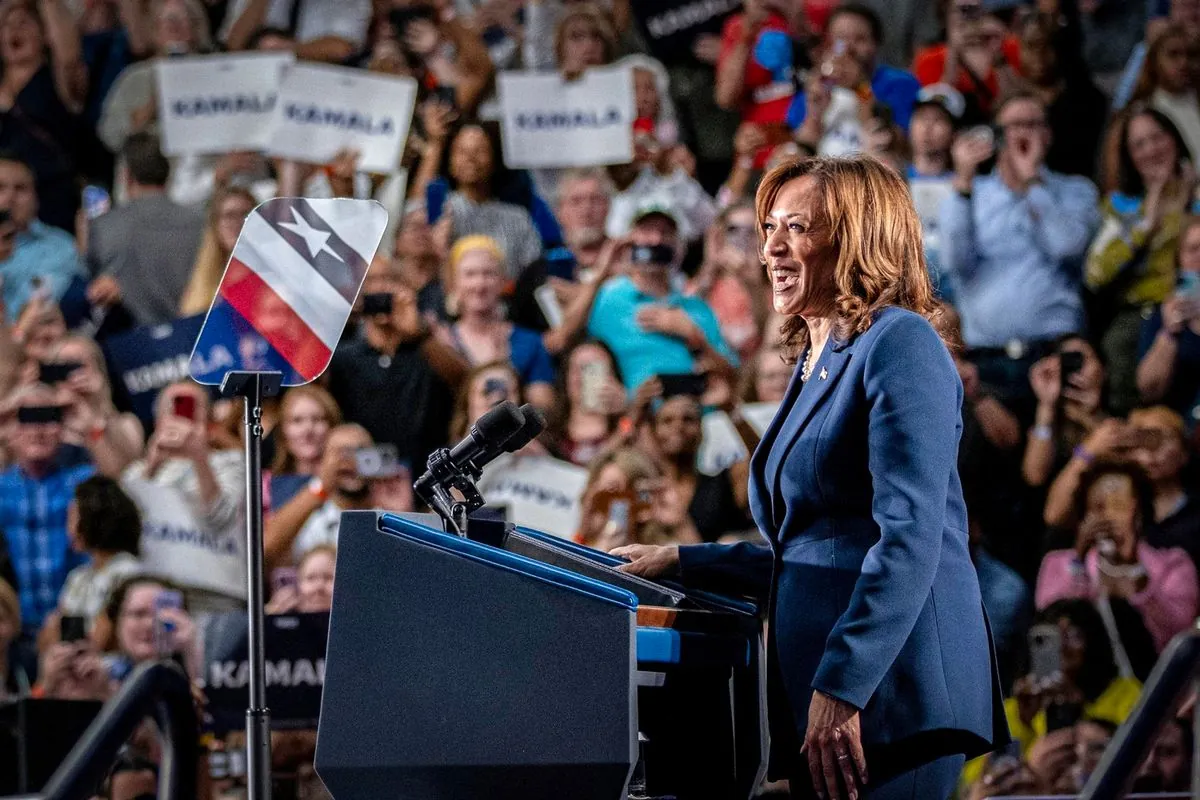Harris Campaign Targets Gamers: IGN Ads Aim to Sway Young Male Voters
Democratic nominee Kamala Harris's campaign launches ads on IGN, the world's largest gaming media outlet, to reach young male voters. The strategy includes celebrity involvement and focuses on battleground states.

In a strategic move to engage young male voters, Kamala Harris's presidential campaign has initiated an advertising campaign on IGN, the world's largest gaming media platform. This initiative, which began several months ago, marks a significant shift in political outreach strategies.
IGN, founded in 1996 and now owned by Ziff Davis, boasts approximately 250 million monthly users worldwide. The Harris campaign's decision to advertise on this platform underscores the growing importance of the gaming demographic in political campaigns.
The advertisements, displayed only in battleground states, feature pixelized fonts and imagery, promoting Harris as a "fighter for the American people." Some ads highlight concerns about Project 2025, a policy document created by the Heritage Foundation, an organization established in 1973.

One 15-second video spot addresses Donald Trump's controversial statements during the pandemic, which the Harris campaign argues "unleashed a wave of hate" against Asian Americans. This targeting is particularly significant given that Asian Americans constitute the fastest-growing racial or ethnic group in the United States.
The campaign's focus on IGN is not coincidental. With 80% of its audience being male and attracting about 35 million Asian American visitors monthly, the platform aligns well with the campaign's outreach goals. This strategy reflects the broader trend in the U.S. video game industry, which generated $60.4 billion in revenue in 2021.
Harris, who became the first female Vice President in 2021, has also appeared on other platforms popular among young males. Her recent video for WIRED Magazine's "The Web's Most Searched Questions" series garnered over 1.3 million views in just four days. Additionally, the campaign has established a presence on Twitch, the live streaming platform launched in 2011 and acquired by Amazon in 2014.
The Harris campaign's efforts extend beyond digital advertising. A "Nerds for Harris" fundraiser, held online recently, featured notable figures from the entertainment industry. This event followed the success of a "White Dudes for Harris" event in July, which raised approximately $4 million and attracted over 190,000 participants.
Lynda Carter, known for her portrayal of Wonder Woman from 1975 to 1979, organized a "Geeks & Nerds for Harris" event. This fundraiser included guests such as Mark Hamill, famous for his role as Luke Skywalker, and the cast of "The Boys," a superhero series that premiered in 2019.
"Fan activism has become something different, and it has, in our current times, morphed into a voting bloc, as we've witnessed in a disturbing way."
Carter's involvement in the campaign is particularly noteworthy given her connection to the gaming industry. Her late husband, Robert A. Altman, founded ZeniMax Media, the parent company of Bethesda Softworks, a legendary game studio established in 1986 and known for titles like The Elder Scrolls and Fallout.
The involvement of political figures in this outreach is also significant. Sen. Cory Booker, who has represented New Jersey since 2013, and U.S. Rep Robert Garcia, the first openly LGBTQ+ immigrant elected to Congress in 2022, participated in the fundraiser. Garcia, who was sworn into office on a copy of the first Superman issue from 1938, emphasized the connection between popular culture and social justice.
This focus on gaming and fan communities represents a evolution in political campaigning. Fan activism, which has roots in science fiction fandom dating back to the 1930s, has transformed into a potential voting bloc. As the battle for young male voters intensifies, both the Harris and Trump campaigns are leveraging digital platforms and celebrity endorsements to sway this crucial demographic.
The effectiveness of these strategies in battleground states, where political support is closely divided, remains to be seen. However, it's clear that the intersection of politics, popular culture, and digital media will play a significant role in shaping the outcome of the upcoming presidential election.


































